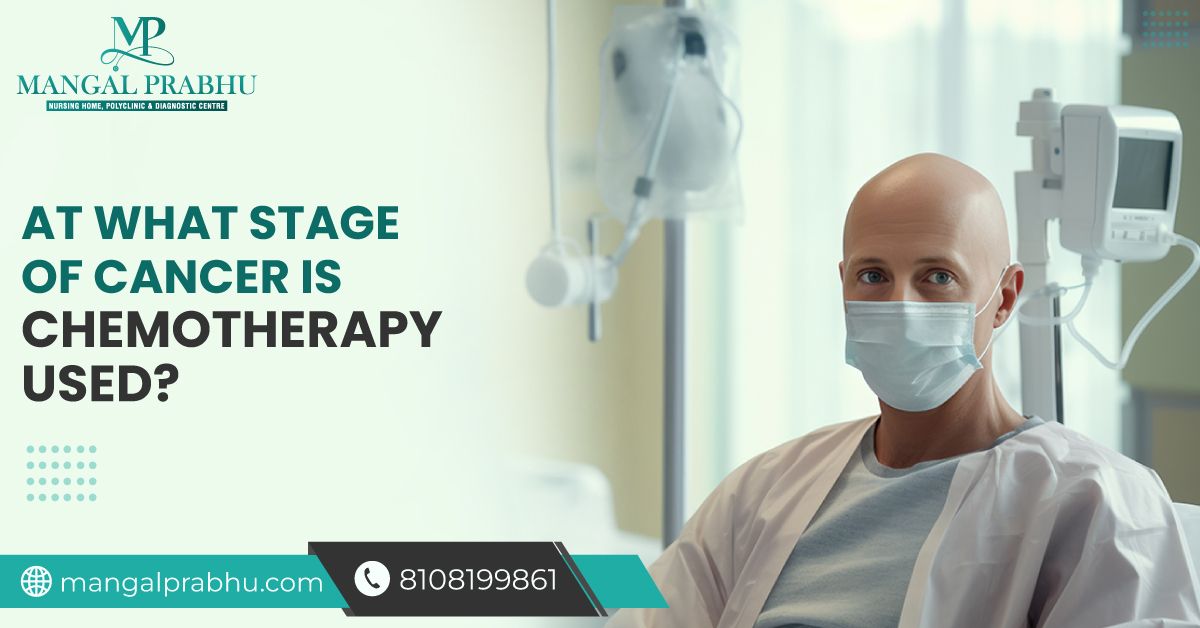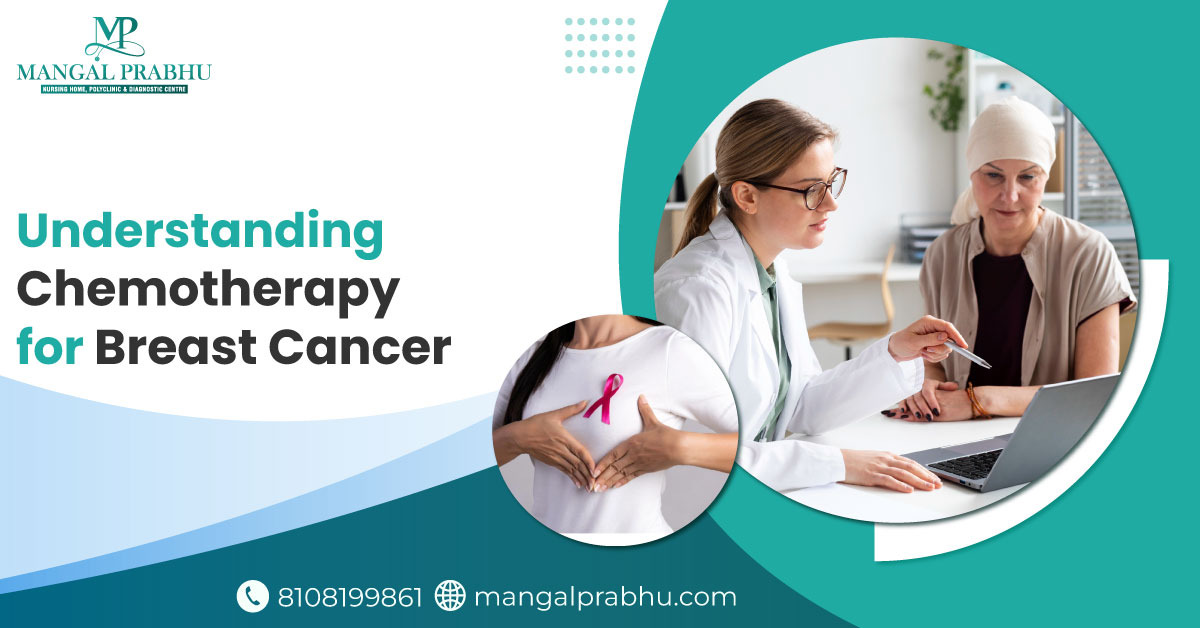
At What Stage of Cancer Is Chemotherapy Used?
Chemotherapy is a combination of medications used to kill cancer cells that are growing aggressively and spreading to your different organs. Chemotherapy treatment in Navi Mumbai is recommended for patients diagnosed with different stages of cancer.
It’s considered an effective treatment option for all types of cancers. The type of chemotherapy your doctor advises depends on the stage, type, and severity of the cancer. They might also factor in your age and health goals to determine the most suitable treatment option.
The Different Stages of Cancer
Chemotherapy can be given for stage I to stage IV cancer patients. Most types of cancer are categorized into four stages, and the diagnosis is done based on how aggressive the cancer cells are, where they have spread, and the patient’s health. For most types, cancer in its first stage is restricted to a specific organ, while the same in stage IV is considered metastatic cancer that has spread to the surrounding organs, probably throughout the body.
Here’s how chemotherapy is planned for different stages of cancer.
Stage 1:
Chemotherapy combined with surgery
Stage 2:
A surgical removal of the malignant tumor and several sessions of chemotherapy.
Stage 3A:
Chemotherapy with surgery or surgery followed by chemotherapy, radiation therapy, and immunotherapy, depending on the location of the cancer. If the cancer can’t be removed surgically, then a combination of chemotherapy, immunotherapy, and radiation therapy is prescribed.
Stage 3B and 3C:
Chemotherapy with multiple rounds of radiation therapy followed by surgery and immunotherapy.
Stage 4:
Chemotherapy, targeted therapy, surgery (if possible), followed by more rounds of chemotherapy.
Types of Chemotherapy Drugs
Chemotherapy drugs are a combination of medications consisting of the following:
i) Alkylating Agents:
These are responsible for destroying the DNA of the replicating cancer cells.
ii) Antimetabolites:
These drugs can destroy cancer cells when they are about to grow out of control in your body. Antimetabolites work for breast, ovarian, and other types of cancer.
iii) Antitumor:
The medication changes the DNA structure of cancer cells, restricting their growth and multiplication inside the body. Mitotic inhibitors are also commonly used to treat cancer cells, but they contain a compound that might destroy healthy cells, as well. So, their use is often limited to certain types of cancers.
Benefits of Chemotherapy
Chemotherapy is the most viable cancer treatment for people diagnosed with cancer in different stages and severity statuses. Here’s how it benefits:
- Restrict the growth of the tumor or shrink its size to make surgical removal of the cancer possible
- Prevent the cancer cells from dividing
- Reduces the risk of relapse
Potential Side Effects
Oncologists in Navi Mumbai recommend chemotherapy after considering your age, size, type of cancer, and your health. Before you choose this treatment, know that it comes with side effects. These may vary depending on the chemo drugs used, but some common side effects found in most patients include:
- Fatigue
- Nausea and vomiting
- Diarrhea
- Hair loss
- Mouth sores
- Loss of appetite
- Anemia
- Weakness in muscles
Schedule an appointment with your healthcare to discuss the most suitable chemotherapy option, the length of the treatment, and the risks.

Understanding Chemotherapy for Breast Cancer
When it comes to combating breast cancer, a multidimensional approach is often required. Chemotherapy Treatment in Navi Mumbai is pivotal in eradicating cancer cells throughout the body. Breast cancer is a formidable adversary, and in the arsenal of treatments available, chemotherapy stands as a powerful weapon against its progression. In this comprehensive guide, you can learn more about chemotherapy for breast cancer, exploring its mechanisms, risks, benefits, and crucial role in the overall treatment landscape.
What is Chemotherapy?
Chemotherapy is a medical treatment that utilizes drugs to target and destroy rapidly dividing cells, such as cancer cells. Unlike localized treatments such as surgery or radiation therapy, chemotherapy circulates throughout the bloodstream, reaching cancer cells that may have spread to other body parts.
How Does Chemotherapy Work for Breast Cancer?
Chemotherapy is a dynamic player in the breast cancer treatment arena, strategically deployed at different phases of the patient’s journey. In the pre-surgical phase, known as neoadjuvant chemotherapy, it shrinks tumors, facilitating more effective surgical removal.
Post-surgery, adjuvant chemotherapy takes the stage, aiming to eradicate any residual cancer cells, minimizing the risk of recurrence. The drugs utilized in chemotherapy exert their impact by disrupting the cell division process, impeding the growth and spread of cancer cells.
This dual approach, targeting both pre- and post-operative stages, showcases the versatility and effectiveness of chemotherapy in comprehensively managing breast cancer.
What Are the Risks and Side Effects of Chemotherapy?
While chemotherapy is a potent weapon, it is not without its challenges. Common side effects include fatigue, nausea, hair loss, and a heightened infection susceptibility. It is essential to acknowledge these potential side effects while recognizing that advancements in medical science continuously strive to minimize the impact on a patient’s quality of life.
Also Read: How Chemotherapy Is Done?
What Are the Benefits of Chemotherapy for Breast Cancer?
The benefits of chemotherapy in treating breast cancer are multifaceted.
1) Tumor Size Reduction
Chemotherapy effectively targets and reduces the size of breast tumors, facilitating a more manageable surgical intervention.
2) Risk Reduction for Cancer Recurrence
By eradicating cancer cells that may remain after surgery, chemotherapy significantly lowers the risk of cancer recurrence.
3) Enhanced Surgical Success
Administering chemotherapy post-surgery ensures the elimination of any residual cancer cells, enhancing the success of surgical procedures.
4) Holistic Treatment Approach
Integrating chemotherapy into a comprehensive treatment plan addresses cancer from multiple angles, leading to a more thorough and effective therapeutic strategy.
5) Long-Term Survival Rates
The multifaceted benefits of chemotherapy contribute to improved long-term survival rates, offering individuals battling breast cancer a more favorable prognosis.
6) Systemic Cancer Cell Targeting
Chemotherapy’s systemic nature allows it to target cancer cells throughout the body, addressing potential metastases and minimizing the risk of distant recurrence.
Conclusion
In breast cancer treatment, chemotherapy plays a dynamic and indispensable role. Its ability to target cancer cells systemically makes it a crucial component of a comprehensive treatment strategy. For individuals confronting breast cancer, collaboration with a specialized medical team, including a Breast Cancer Specialist in Navi Mumbai, is essential. Mangal Prabhu Hospital is a beacon of healthcare excellence, providing state-of-the-art facilities and a dedicated team of experts to guide patients through their breast cancer journey.
